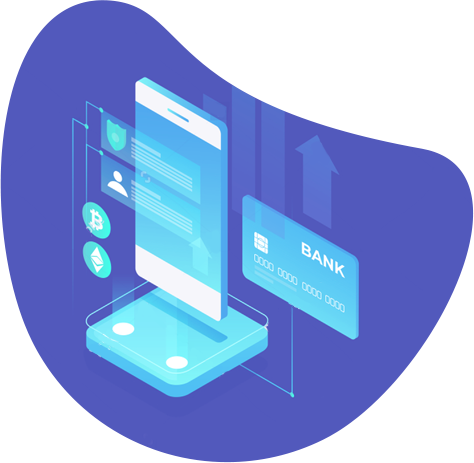
About dCharge
dCharge
A fully decentralized and unstoppable Payment Gateway
The objective of dCharge is to lead the digital payment industry into a new era by deploying an unstoppable platform for vendors and patrons that transforms the current centralized payment landscape. These current centralized entities can, by being centralized, impose censorship or financial blacklisting, use information for data mining, and contain risks for chargebacks or data breaches. dCharge, on the other hand, is censorship and blacklisting resistant, can be use by anyone, anywhere, has no chargeback risks and is built with privacy in mind for both vendors and patrons.
The dCharge platform, once fully deployed, will continue to run as long as the Ethereum blockchain is live with ownership and settings fully managed through the dCharge DAO; making it impossible for even the creators to impose changes without the proposed change first passing community governance. The dCharge token is a governance and utility token used by vendors for additional perks on the platform, and to control the dCharge Platform, Treasury and Mall through community governance.

services
dCharge Ecosystem
Quickly and easily accept cryptocurrency payments through e-commerce platforms or Point of Sale devices. Earn dCharge token rewards for successful sales and allow consumers use any supported ERC-20 token as payment, with automatic conversion to an output token such as DAI.
Easily issue NFTs to consumers through automated processes. NFTs may store information relevant to each purchase and usage includes easily provide on-chain proof of ownership of collectibles or other unique physical items.
Fully decentralized in smart contracts, consumers must deposit cryptocurrency as collateral and can then borrow. Loan is then repaid with accrued interest to have their collateral returned.
On-chain privacy capabilities supporting ETH, DAI, USDC and USDT where consumers can benefit from not disclosing their primary wallet addresses.
Treasury is fully managed by dCharge DAO. Treasury is continually built up through vendor fees set by the DAO, and funds may be used for development, marketing, rewards, exchanges, liquidity, etc.
Stores can get added to the virtual mall, either by exceeding a set sale number, being pushed forward by the DAO, or by paying the Treasury a set amount of DCharge tokens. Accessable by consumers using a mobile or desktop based browser and is curated by the DAO to provide a relevant list of vendors accepting cryptocurrency payments through dCharge.
Statistics
Current and future markets
Expected Online Payment Fraud Losses in 2024
$200 BillionDigital Payments in 2020
$5.4 TrillionExpected Digital Payments in 2025
$10.5 Trillion

Roadmap
Road ahead


Enabling Digital Payments
How does it work?
Vendor decides to accept payments in cryptocurrency, quickly integrates with dCharge.

Customer decides to pay for purchase using a cryptocurrency supported by the vendor.

dCharge monitors for completion of purchase.

The vendor can withdraw funds, and is awarded CHARGE tokens depending on the size of purchase.
Tokens
Token Distribution
55% - Public IDO
20% - Liquidity
15% - Team
10% - Treasury
- Max tokens ever in existance: 100.000.000
- Bonus system: No
- Presale or Private Sale: No
- Whitelist: No

White Paper

FAQ
Frequency Asked Questions
-
How do I participate in the IDO?
Participating in the IDO is done by sending ETH tokens to the IDO smart contract on the Ethereum network. When sending ETH to the contract, the contract will store the amount of CHARGE tokens you are entitled to and you can then withdraw them after the IDO has been successfully completed.
-
How can I be sure I'm sending to the correct smart contract?
To be sure you are sending to the right address we advise you to utilize the IDO page located at https://ido.dcharge.io, and you can verify the contract address on the dCharge social media channels.
-
When can CHARGE be used?
CHARGE tokens are locked for the duration of the IDO. Once the IDO has been successfully completed (soft target met and the date and time has been reached), you can withdraw your CHARGE tokens by using the Collect function on the IDO page. This function is automatically enabled if the DAO is successful. You can then start using the tokens in the DAO, trade the token on platforms and use the tokens on the dCharge platform once publicly launched.
-
What happens if the soft target is not met?
In the event that the soft target is not met, the ETH deposited by each user can be withdrawn by using the Refund function on the IDO site. This function is automatically enabled if the IDO fails.
-
How can I trust the IDO contract?
The IDO contract, just as the CHARGE token, is built using OpenZeppelin libraries and can be viewed on etherscan.io.



News
Latest News
Digital Payment Options Thrive in a Time of Social Distancing
"The financial industry is rapidly becoming more and more reliant on new technology."
$7 Trillion expected to shift from cash to digital payments
"According to the study conducted by Accenture, transactions worth USD 7 trillion are expected to shift from cash to card and digital payments by 2023."
In the future of payments, digital will take charge
"The digital wallet is transforming. Learn how businesses and consumers can prepare for the next phase of innovation"
In the future of payments, digital will take charge
"The digital wallet is transforming. Learn how businesses and consumers can prepare for the next phase of innovation"

